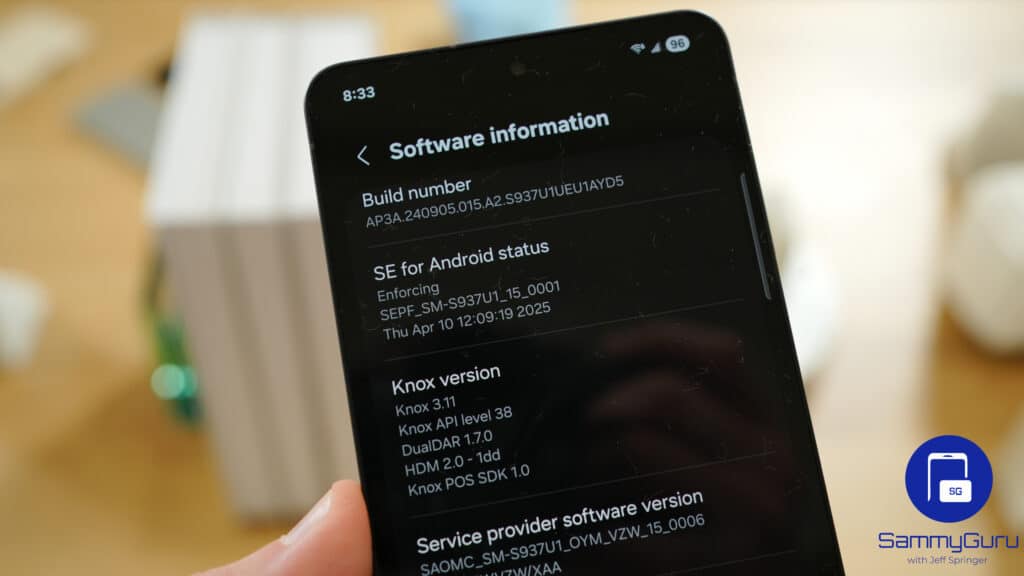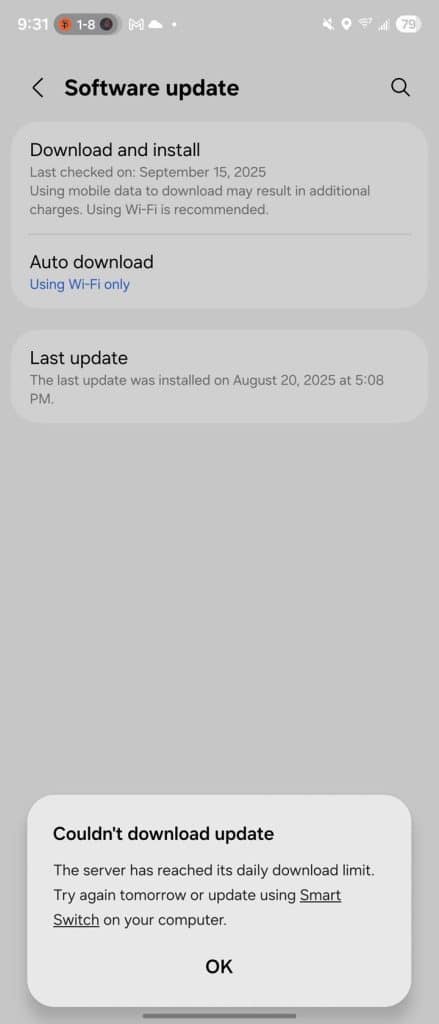Samsung’s software update strategy has already been under fire this year, with the fragmented rollout of One UI 8 across phones and the confusing silence around One UI 8 Watch. Now, things have taken an even stranger turn: we recently experienced unusual server errors when checking for security updates. This casts further doubt on the company’s ability to deliver timely and reliable software support.
Several Samsung users reported a strange error message when checking for updates
We recently tried checking for the September security patch on a Galaxy Z Fold 7 in the U.S. Normally, if no new update is available, the system simply reports that the latest software is already installed. This time, however, we ran into an unusual error message instead:
Couldn’t download update: The server has reached its daily download limit. Try again tomorrow or update using Smart Switch on your computer.
At first glance, this sounds like a genuine server-side restriction, but it raises immediate questions. Why would a global brand like Samsung impose daily download limits on critical updates? Unsurprisingly, this wording has fueled speculation about whether it was a real server cap or simply an internal glitch.
Adding to the puzzle, several other Galaxy users confirmed seeing the same error around the same time, though we don’t remember this happening before. That points to either a temporary server-side hiccup or a misconfigured system flag, rather than a deliberate policy.
Major smartphone vendors rely on content delivery networks (CDNs) capable of handling millions of update requests per day without artificial restrictions. That makes it unlikely this was a deliberate cap, and far more likely it was a glitch in Samsung’s update infrastructure. Still, for end users, the technical explanation doesn’t matter as much as the growing frustration.
Even without this bizarre error message, Samsung’s update delivery has faced criticism. The September 2025 security patch, for example, was pushed to Korean Fold 7 units more than a week before reaching U.S. models. Such delays are very common, suggesting that Samsung sees no problem with it. However, it adds to the sense of uneven treatment across regions. It remains to be seen if Samsung addresses these issues anytime soon.


